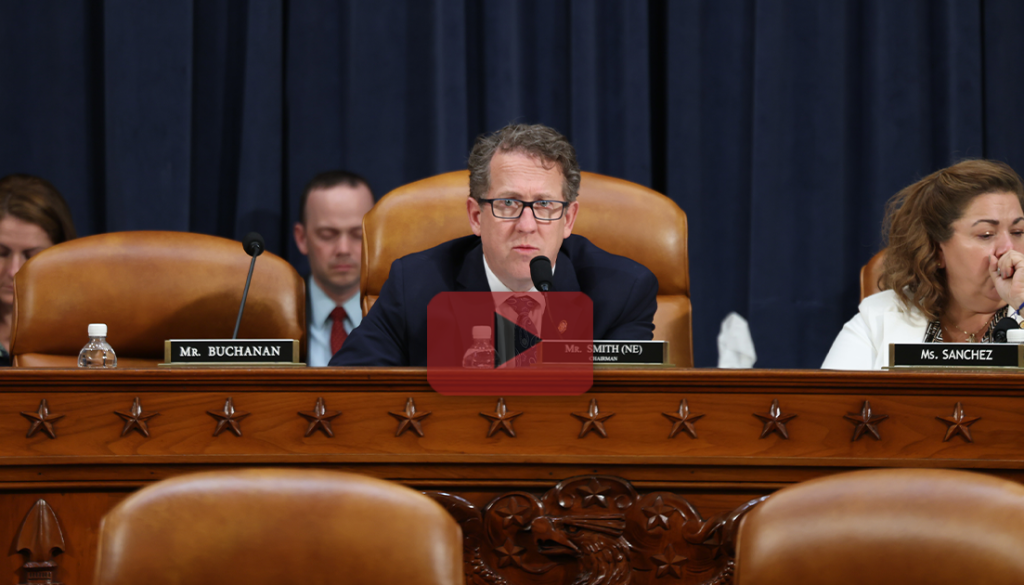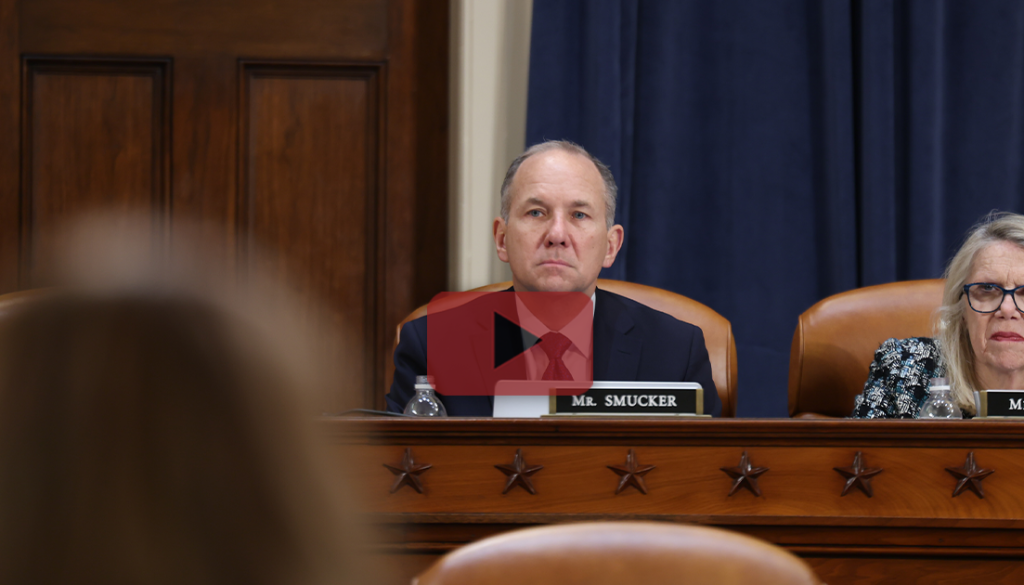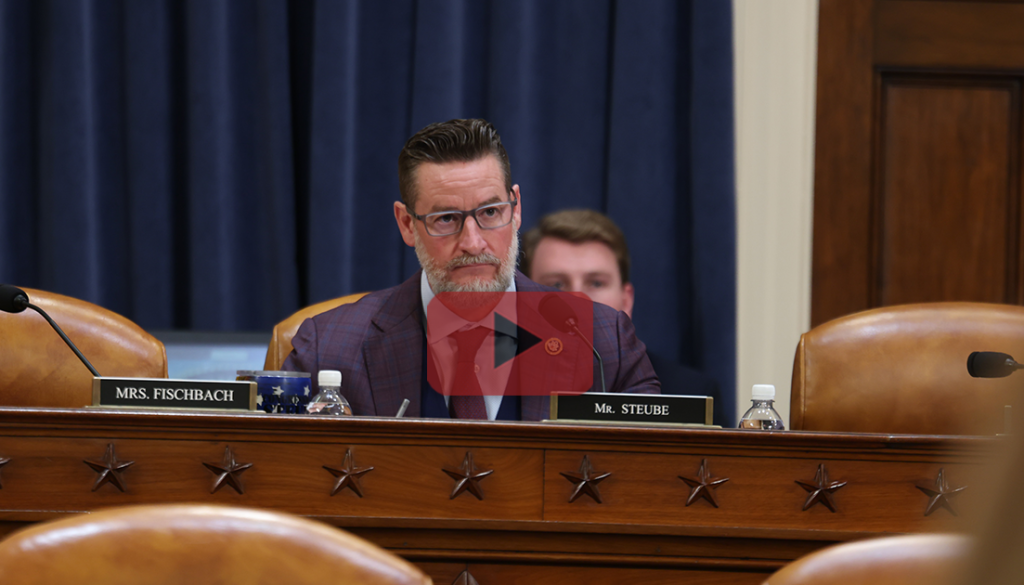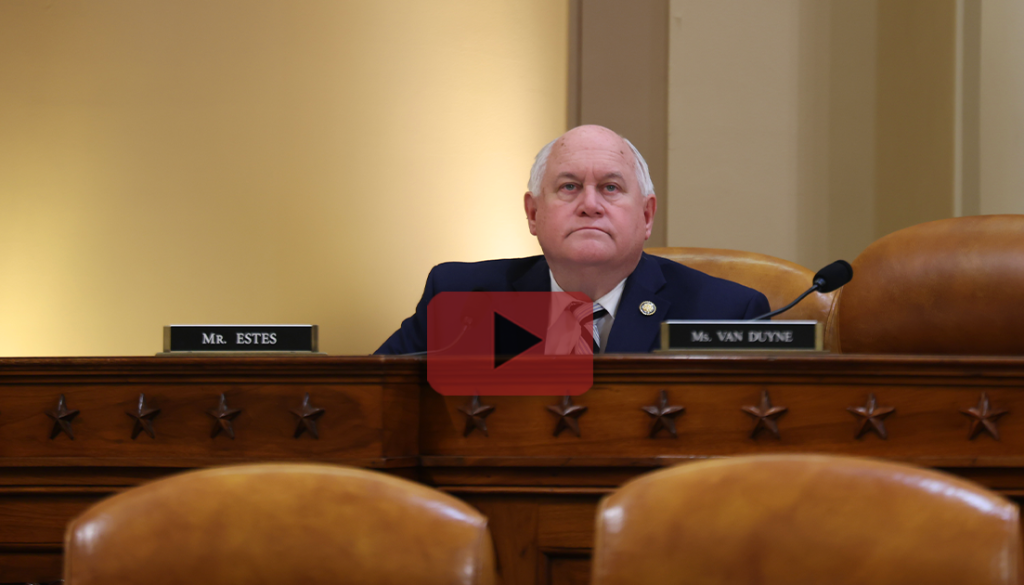WASHINGTON, D.C. – In advance of the release of the Trump Administration’s America First Trade Policy, the Ways and Means Trade Subcommittee held a hearing outlining key priorities for future trade negotiations. The hearing highlighted how President Trump’s trade strategy is building off the successful trade negotiations from his first term, including standing up for American workers and producers against unfair competition abroad from countries like China. Committee members outlined the need for fair and reciprocal treatment in trading relationships with foreign countries. The swift and decisive action taken by President Trump is in stark contrast to the lack of a trade agenda from the Biden Administration, which resulted in little new market access and weakened enforcement.
Trump Administration Will Expose Unfair Trade Barriers to American Exports
In his first 100 days in office, President Trump has shined a spotlight on the unfair treatment of American producers by foreign countries, including through unfair application of value-added taxes (VATs). Many countries waive the VAT on exports, putting American manufacturers, who do not benefit from a similar tax adjustment on exports, at a competitive disadvantage. The Trump Administration’s America First trade policy review will highlight the full scope of unfair barriers in order to move our trading relationships toward reciprocal relationships that benefit American workers, producers, and farmers.
Rep. Adrian Smith (NE-03): “You talked a lot about VAT, value-added tax. Our trading partners play games with that. They waive or refund the VAT on their own products for their own taxpayers or consumers. When they ship it to us, they waive the VAT, and yet they don’t waive on anything we ship to them, whether it’s your products or across our economy. That certainly creates an unlevel playing field…Can you elaborate more on how you see that?…Can you give a little more commentary to that inequity?”
Jonathan Root, Chief Financial Officer, Harley-Davidson: “As we look at VAT, we do feel like the landscape is slightly uneven and slightly unequal in terms of the treatment of American products in many foreign markets. Obviously, VAT can be very large percentages. We demonstrated some of those examples in my opening comments. That certainly is something that puts us as a U.S. manufacturer at a competitive disadvantage when you look at the premium nature of the product that we produce – certainly adds a fair amount of cost from a consumer standpoint. We think it is a perfect example of an uneven playing field, and something that we would like to see addressed.”
Trump’s First Term Is A Successful Blueprint For America First Trade
The four years of President Trump’s first term showed the success of America First trade policies. USMCA opened the Canadian and Mexican markets to more American goods and services and the 2018 tariffs on China brought the Chinese government to the table to sign the Phase One Agreement that began to address decades of unfair trade practices with new and enforceable commitments. The return to an aggressive trade agenda under President Trump is a welcome relief from a Biden trade record that did little to expand market access for American exports.
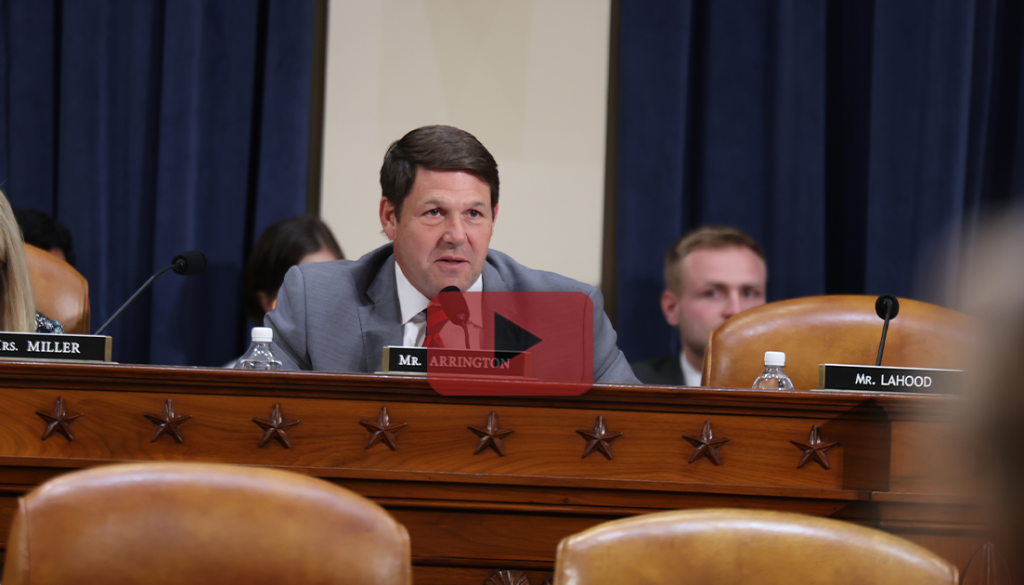
Rep. Jodey Arrington (TX-19): “I am more confident today than maybe at any other time that we’ll solve some problems and see some opportunities for the United States…Let’s talk about making American trade great. It doesn’t work when we have an average trade rate of 3.3 percent and the 20 largest economies, developed countries who we compete with and trade with, have twice that rate. When you look at agriculture, I think our average rate is around 5 percent, but the 20 largest economies have three times that rate…This President is attempting for the second time, because we lost a lot of the ground we made up in his first term, to reset those relationships such that we’re playing by the same set of rules. Everyone wins. Then consumers get to choose, and producers and manufacturers get to make that value proposition and everybody’s quality of life improves as a result. Do you see it any differently than that?…As I recall, he [President Trump] was successful at bringing those trade partners to the table. In fact, because of the actions and leadership that he demonstrated, the same posture he’s taking today, we were able to negotiate trade deals with five countries that represent over 50 percent of our export markets.”
Robby Kirkland, Texas cattle rancher: “We do appreciate what President Trump did in his first term. He opened some doors. He opened doors in China, where we hadn’t traded for 20 years, possibly…And then, like I said, over the last four years, there has not been as much aggression there. It’s time to step up to the plate, in our opinion.”
“We certainly aren’t asking for protectionism, but rather fairness.”
Harley-Davidson is evidence of the success of American tariff policy. In the 1980s, American motorcycles faced unfair imports that threatened the company’s survival. Tariffs imposed by President Reagan helped the company survive. Today, the company employs over 4,000 American workers. However, American exports, including motorcycles, still face unfair barriers. In some cases, as the Chief Financial Officer of Harley-Davidson testified, the cost of certain motorcycle models in Denmark could be four times as high as the American sticker price – all because of unfair foreign tariffs and trade barriers.
Rep. Lloyd Smucker (PA-11): “Mr. Root, if you had a magic wand, what policy solutions, what trade measures, would you recommend that Congress pursue to help level the playing field for Harley-Davidson and for other U.S. exporters in foreign markets?”
Jonathan Root, Chief Financial Officer, Harley-Davidson: “We certainly believe that any trade agreement must have enforcements and reciprocal duties; minimize non-tariff barriers; things like excise taxes, luxury taxes that we’ve talked about; and enforce country of origin requirements. We certainly aren’t asking for protectionism, but rather fairness.”
Rep. Smucker: “Can you outline some of the most significant tariff barriers that you face in key markets like the EU and in India? Also how that affects your bottom line and how that affect your operations?”
Root: “Some of the things that we’ve talked about are very high tariff treatment in terms of products that we export from the U.S. That includes the 100 percent tariff we talked about in India. It includes the six percent, which could go to 56 percent from an EU perspective. We talked about the situation in Denmark and some of the luxury taxes they get passed along. In addition, there are a number of non-tariff barriers that countries place on our products. These include special licensing requirements for certain-size motorcycles. There are a number of very obvious ways that we feel we are certainly targeted. There are some elements that are a bit more creative.”
Brexit Freed United Kingdom To Pursue Fair Trade With United States
The United Kingdom’s decision to leave the European Union opened the door to a potential U.S.-UK trade agreement. Trade negotiations with one of America’s closest allies could allow for greater American agricultural, manufacturing, and services exports. Sadly, President Biden failed to continue the meaningful trade talks that occurred during the first Trump Administration.
Rep. Greg Steube (FL-17): “President Trump has discussed the need for improved bilateral relationships with the United Kingdom and their Prime Minister seems like one of the few sensible world leaders working with the President. Can you provide more details on how a U.S.-UK trade agreement could improve bilateral regulatory cooperation?”
Meredith Broadbent, former U.S. Trade Representative negotiator: “I think it’s a huge opportunity to kind of tack the UK back a bit from Brussels’ heavy-handed regulation, which is not science-based, not mutual recognition. Brussels seeks to harmonize everybody with Brussels’ regulation. To sell in Europe, they demand that you follow their regulations to the law, rather than having your own standards that they could recognize. I think the UK would be a good partner to talk to about this. We spent a long time negotiating with Europe under the TTIP (Transatlantic Trade and Investment Partnership) negotiations and never came to any result that would open markets for U.S. exports of beef there. We need to try it with the UK It may be a sensitive issue in the UK, but I think we’ve got smart people that can figure out regulations so that we both feel assured with the safety of the food that we’re getting.”
Rep. Steube: “Which sectors do you believe would benefit the most from that type of collaboration?”
Broadbent: “I think all sectors, manufacturing, services and agriculture, because it is an overall approach to regulation that goes across the economy, that the UK took on board when they joined the European community.”
Trump Trade Agenda Already Leveling Playing Field For American Companies
Multiple countries levy digital service taxes (DST) as blatant revenue grabs from America’s technological leaders. In response to President Trump’s aggressive trade agenda, India is repealing its six percent tax on digital advertising services. India’s reversal speaks to the effectiveness of the Trump trade agenda in advancing America’ interests.
Rep. Ron Estes (KS-04): “Do you have any perspective on either India’s equalization levy specifically or the importance of addressing digital taxes that discriminate against U.S. companies around the world?”
Christine Bliss, President, Coalition of Service Industries: “The elimination of discriminatory DSTs are a priority for my members. With respect to India’s action, I think it’s a very positive announcement that was made by the finance minister with respect to the six percent levy on advertising activities and it comes after the announcement that the Indians made last year in August that they would eliminate their two percent levy on online services. I think that’s a very, very positive step in the right direction. More generally, unfortunately, we still have a huge problem with DSTs. I would point to Canada, with its three percent tax on revenue from certain digital services, and the fact that that would be applied retroactively, I think it’s a huge problem. It would be a major cost to U.S. companies that are affected. That remains a serious problem. I also think it remains a serious problem in Europe, with the failure of Pillar One in the BEPS [Base Erosion and Profit Shifting] negotiations. Roughly half of the European nations that are members of the OECD are either talking about or have in place DSTS. We absolutely agree that it’s a major problem, and one that absolutely needs to be addressed in terms of our negotiating priorities.”

